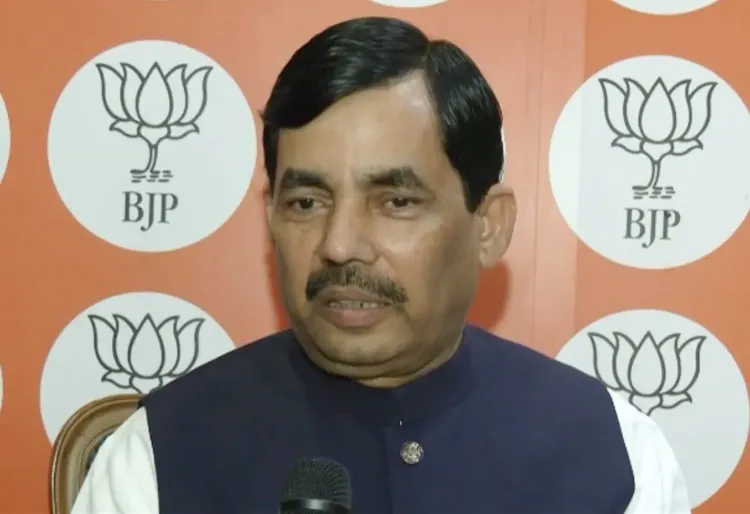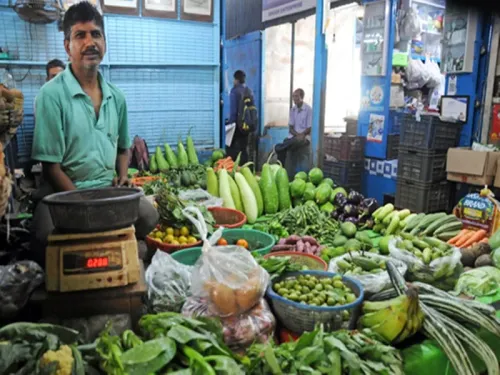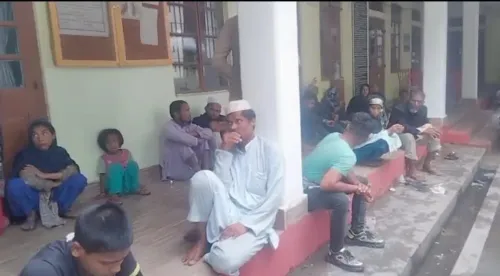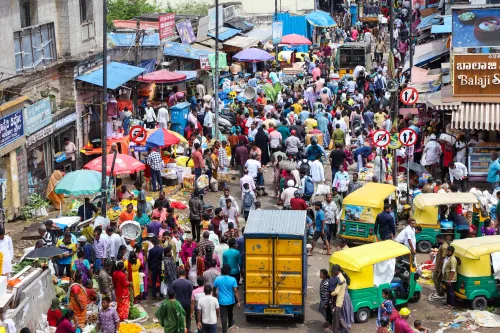Do Most RJD Candidates Have 'Criminal' Records, As Per BJP?

Synopsis
Key Takeaways
- The BJP alleges that the majority of RJD candidates have criminal records.
- Internal rifts within the Mahagathbandhan are becoming apparent.
- Seat-sharing disputes may lead to unexpected electoral outcomes.
- The upcoming elections could be influenced by public perception of candidate integrity.
- Confusion in party nominations can impact voter turnout and preferences.
New Delhi, Oct 21 (NationPress) BJP national spokesperson Shahnawaz Hussain on Tuesday condemned the Rashtriya Janata Dal (RJD) for nominating candidates with criminal backgrounds in the forthcoming Bihar Assembly elections, asserting that among RJD’s 143 candidates, a considerable proportion have criminal records.
In an interview with IANS, Shahnawaz Hussain remarked, “In Bihar, RJD has revealed its list of candidates. Out of their 143 candidates, the majority possess criminal records. Some are currently on bail, some have previously served time, and others are facing imminent sentences. This list demonstrates RJD’s internal conflicts within the Mahagathbandhan. Notably, one candidate was jailed after filing nominations.”
He further stated, “The NDA is poised for victory. Under the guidance of Nitish Kumar, and supported by Upendra Kushwaha, Chirag Paswan, along with the strategic insights of Amit Shah, we will secure a substantial majority in the Bihar polls. Many leaders within the Mahagathbandhan are embroiled in disputes and internal conflicts. Given their disunity, how can they possibly challenge the NDA?”
Simultaneously, the Mahagathbandhan is facing confusion and disagreements, leading to a peculiar scenario in a constituency in Darbhanga district, where Tejashwi Yadav is likely to campaign against a candidate representing the RJD’s own symbol.
The seat-sharing arrangement among Mahagathbandhan partners has been fraught with contention, leaving numerous issues unresolved. Consequently, various constituencies in Bihar will encounter “friendly fights” where alliance members compete against each other.
In the Gaura Bauram constituency, the seat-sharing situation escalated. Before finalizing their arrangement, the RJD had declared Afzal Ali Khan as its candidate from Gaura Bauram, providing him with the party symbol and formal nomination documents.
Thrilled with the confirmation, Afzal departed Patna for his constituency, embarking on a four-hour journey to launch his campaign. However, upon arrival, backchannel negotiations between the RJD and Mukesh Sahni’s Vikassheel Insaan Party (VIP) had altered the situation. As per the final agreement, Gaura Bauram was allocated to VIP, and all Mahagathbandhan partners were instructed to rally behind Santosh Sahni, the VIP candidate.
A similar scenario unfolded during the Lok Sabha elections in Banswara, Rajasthan, where the Congress initially fielded Arvind Damor but later withdrew support in favor of Rajkumar Roat from the Bharat Adivasi Party. Despite being asked to return the party symbol, Damor vanished and resurfaced after the deadline, resulting in Congress leaders campaigning against a candidate bearing their own party’s symbol. Roat eventually triumphed, yet Damor managed to garner over 60,000 votes—underscoring how such confusion can impact closely contested elections.









